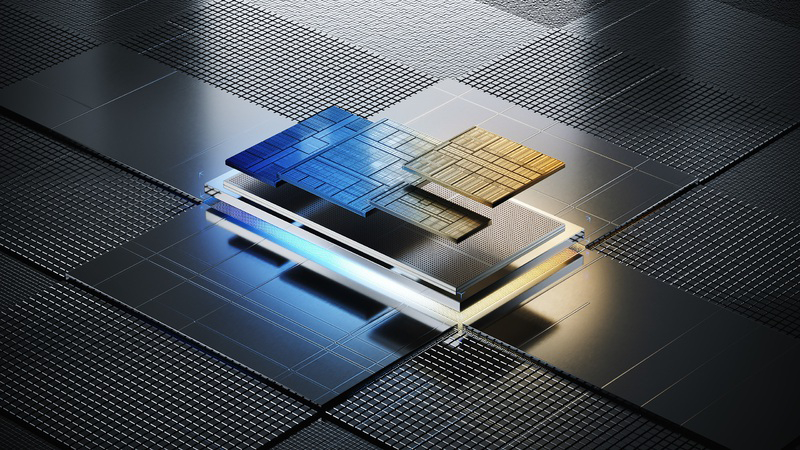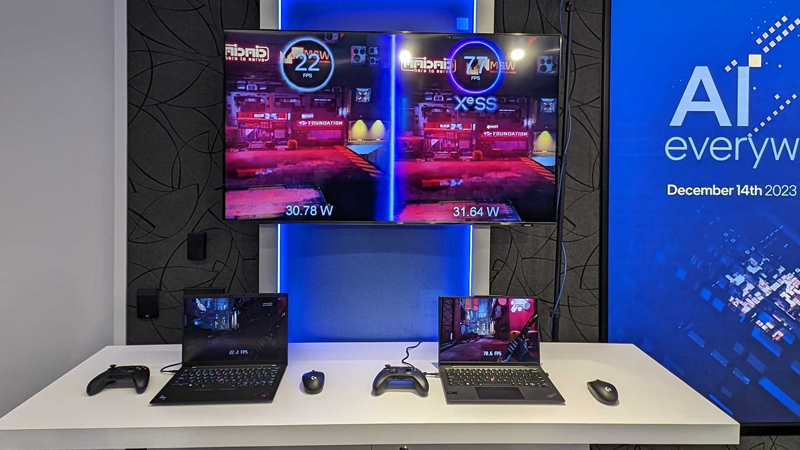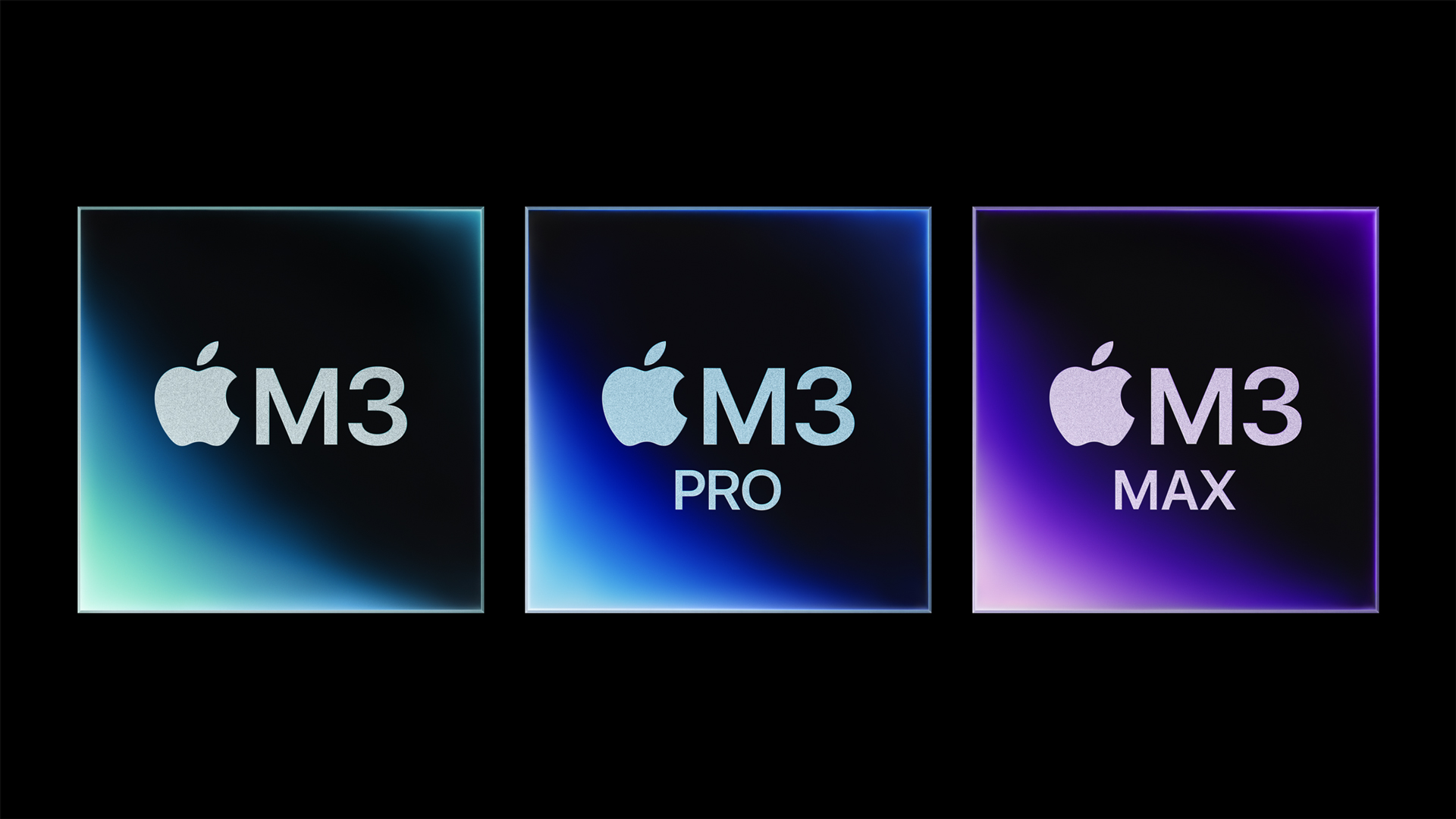Intel launches Core Ultra processors to power up your next laptop with AI
Intel Core Ultra promises to bring AI applications to every laptop

Sign up for breaking news, reviews, opinion, top tech deals, and more.
You are now subscribed
Your newsletter sign-up was successful
Intel Core Ultra is officially here with Intel's AI Everywhere event kicking off today, December 14, 2023.
The new processors, first announced at Intel Innovations a couple of months ago, are Intel's first chips to feature a neural processing unit (NPU).
“AI innovation is poised to raise the digital economy’s impact up to as much as one-third of global gross domestic product,” Intel CEO Pat Gelsinger said in an Intel press release. “Intel is developing the technologies and solutions that empower customers to seamlessly integrate and effectively run AI in all their applications — in the cloud and, increasingly, locally at the PC and edge, where data is generated and used.”
This means that AI applications like those powering ChatGPT and Midjourney are set to become much more ubiquitous, though those apps require data to be sent over the internet to servers run by OpenAI and others to produce an output. Intel's new chips hold the promise that applications like those might start being processed offline on your device rather than on someone else's, a huge improvement in data security, especially for business and enterprise users.

Bringing the biggest CPU architecture upgrade to the everyday laptop
Intel's new Core Ultra processors introduce three new major architecture features to its laptop portfolio.
To begin with, there is the move to a multi-chiplet-module (MCM) design, which leaves behind the single-silicon-die design paradigm that Intel pioneered decades ago in favor of several smaller silicon chiplets bonded together to form a single chip. This allows for more versatility in the chip design than previous generations of processors in terms of what functionality the resulting chip will have.
Next, there is the neural processor. The NPU is specialized hardware in the chip that processes machine learning tasks that are at the heart of the various artificial intelligence applications we've seen explode into the mainstream this year, like ChatGPT. Those apps require you to send data elsewhere, however, meaning that it's not good for anything requiring security. The NPU will ultimately allow for more personal AI applications like photo editing and document drafting to occur on device.
Sign up for breaking news, reviews, opinion, top tech deals, and more.
You also have the integration of the new Intel Arc GPU. With up to 8 XE GPU cores, this is roughly equivalent to having an Intel Arc 370M discrete GPU integrated right into the processor, minus the dedicated video memory. An integrated GPU will never be able to match a current-gen discrete GPU in a laptop, but it does mean that more casual users will have access to more powerful graphics technology like real-time ray tracing and hardware-accelerated resolution upscaling, both of which are increasingly used in modern PC games.
Finally, there is the inclusion of new low-power efficiency (LPE) cores, which in addition to high-power performance cores and more modest efficiency cores, further improve the efficiency of Intel's laptop lineup, something that took a bit of a hit with the past two generations of Intel chips.
We expect that Intel Evo, Intel's laptop certification that requires at least a nine-hour battery life, will become much more common again thanks to these new processors.

Can it compete with the Apple M3 and an increased interest in AMD mobile chips?
Of course, the biggest question is whether the new Intel Core and Core Ultra processors will be able to compete with Apple's newest M3 processors. Apple's chips, which power the Apple MacBook Pro 14-inch and MacBook Pro 16-inch, are some of the best processors ever made, so it remains to be seen how well Intel's new chips stack up.
That said, Intel has about a 70% market share for laptop CPUs, though that number is a bit fuzzy given the huge number and variety of "laptops" on the market. Still, with Apple's move to in-house silicon, Intel is facing unexpected competition from Apple devices while fending off a surge in competition from AMD's mobile processors which are increasingly sought after in the best gaming laptops.
Many of the best laptops on the market though still sport Intel chips, and that's not likely to change anytime soon, but Intel's new Core and Core Ultra processors are launching in a much more competitive environment than previous releases, to say the least.
You might also like

John (He/Him) is the Components Editor here at TechRadar and he is also a programmer, gamer, activist, and Brooklyn College alum currently living in Brooklyn, NY.
Named by the CTA as a CES 2020 Media Trailblazer for his science and technology reporting, John specializes in all areas of computer science, including industry news, hardware reviews, PC gaming, as well as general science writing and the social impact of the tech industry.
You can find him online on Bluesky @johnloeffler.bsky.social